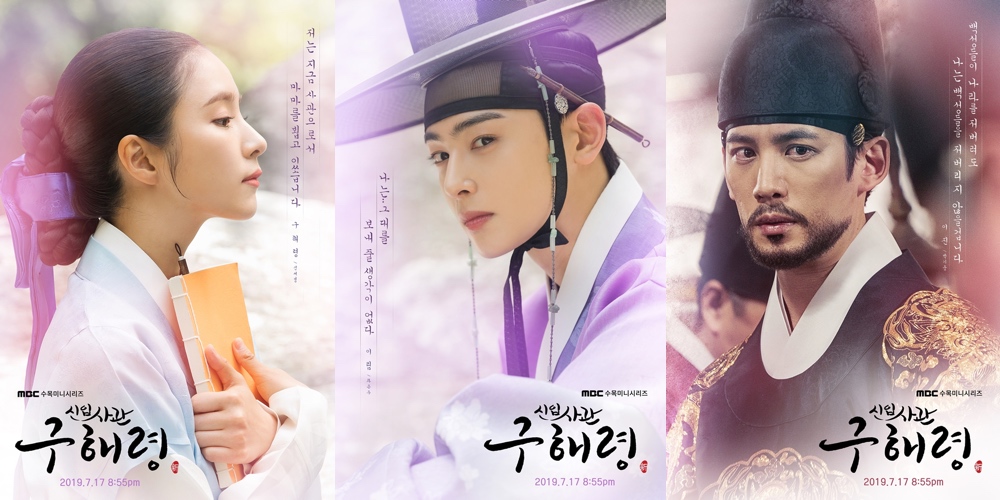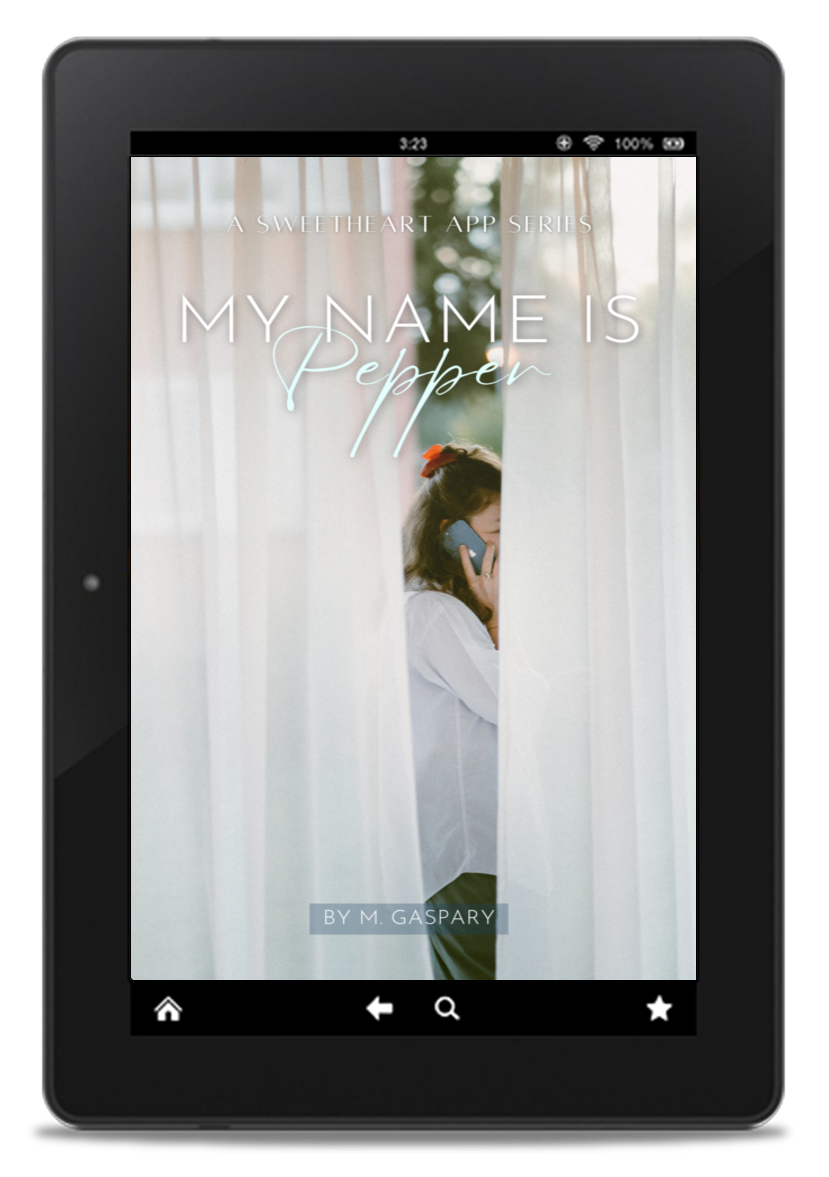Rookie Historian Goo Hae-Ryung is a great Korean historical drama that projects modern journalism. If you want to find out the reason, read the entire post.
In the previous days, I started to binge-watch Rookie Historian Goo Hae-Ryung out of curiosity about Cha Eun Woo’s acting. Other than that, I had no interest in the beginning. Yet, I unconsciously noticed myself indulging episode to episode until I reached the end.
And because of my awesome experience with this great Korean historical drama, it deserves a space on the site.
I will share my insights about the series and pinpoint the themes it talked about. Thus, don’t expect me to write a summary of every episode or shallow thoughts about the series.
I will go deeper and connect the dots to extract the substance you could get from this Korean drama series. Are you ready? Let’s dive into it. Shall we?
Table of Contents
- What Is Rookie Historian Goo Hae-Ryung All About?
- Rookie Historian Goo Hae-Ryung As A Korean Historical Drama (Saeguk)
- Rookie Historian Goo Hae-Ryung Review – My Final Verdict

What Is Rookie Historian Goo Hae-Ryung All About?
Rookie Historian Goo Hae Ryung is a 2019 series aired on MBC and later on Netflix for the benefit of its international audience.
Perhaps, you may have seen various summaries out there talking about a free-spirited female historian and a prince popularly known as “Maehwa” for his romance novels.
In my eyes, it’s beyond that as this Korean historical drama series revolves around how women played a big role in changing the world.
Set in Joseon, Goo Hae-Ryung is a feisty noble lady who doesn’t feel the need to conform to society’s idealistic view about women. It’s like Mulan if you compare the two.
However, unlike Mulan, Hae-Ryung prefers war by writing the truth than the sword to protect someone and the country.
From there, you already have an idea of what this series emphasizes. It’s about how the concept of modern journalism started and started to be understood in a way that historians protect the truth with their lives.
For instance, even if the king proclaims a royal order to read the sachaek, the sacred book historians use to record daily events, he doesn’t have the right to do so even if he calls for execution.
Consequently, she couldn’t help but notice the contrast between her and Maehwa’s preferences when it comes to writing. Prince Dowon aka “Maehwa” likes to write romance novels out of boredom and curiosity if women love his books.
Whereas Hae-Ryung prefers writing and reading a piece that changes someone’s life and a country on a bigger scale.
Although she never learned academically, her vast knowledge gained from reading Western books and philosophies influenced her perspective in life.
Women should be treated equally with men because women are humans, too.
This is what she believes and she holds onto it. Strongly.
In general, this is what Rookie Historian Goo Hae-Ryung is about. In the next section, we’ll go through the highlights of the Korean historical series and see what you could get from it.
As I said earlier, I am not here to talk about the summaries of every episode but to decipher the underlying meaning of the story as a whole.
Are you ready to know? Let’s get into it.

1. Emphasis On Feminism
Let’s take a look at every country’s history. Women are once deprived of their rights to be equal to men. And whoever tries to defy the norms will be ridiculed and punished severely, if not, death.
This sounds true during the Joseon Dynasty when women’s existence is limited to obliging towards inherited responsibilities i.e. training to become a noblewoman, keeping the household, etc.
In Rookie Historian Goo Hae-Ryung, it’s the most obvious element that plays a pivotal role in the story. Hae-Ryung, a young, feisty noblewoman, fails to appreciate the norms and does otherwise.
Instead of getting married at a standard age, she pursues to see her life purpose. Even when she’s already 26 years old, too old to get married.
“I wanted to be useful,” Hae-Ryung said in one of the episodes with a clear depiction of her determination to become someone, a woman, who can play a big role in justifying the wrongs and changing the world in her ways.
Her existence itself becomes influential in the story. Her strong beliefs, together with the other 3 female historians, proved that women can do something great aside from mastering the household duties.
Women aren’t weak but strong. Like men, they can do anything as they’re equal and of the same species. Men and women are humans. None of them is greater.
Goo Hae-Ryung
Women aren’t weak but strong. Like men, they can do anything as they’re equal and of the same species. Men and women are humans. None of them is greater.
The men’s physical strength doesn’t measure enough if this is what society intends to justify. Women may not be able to lift heavy things but they are capable of doing bigger things with lesser effort.
They don’t need to be physically mighty but mentally, they are. So, the point of Rookie Historian Goo Hae-Ryung is that women shouldn’t be silenced simply because they’re born to become someone’s wife and mother.
Women have the right to aspire and reach their dreams even if disregarding the social system is a must.
Through Hae-Ryung, she becomes an epitome of strong will and laser-focused goal seeker too brazen in her time—at the time when women are considered weak.
Suggested Post: 17 Best Korean Drama Plots Hooked Us To Binge Watch

2. Clash Of Religion vs Scientific Ideals
Ancient Korea heavily relies upon its foundation in the Chinese culture. Others define it as a “heavily borrowed” culture. That includes referring to Confucianism for its ideals for its kingdom and the Chinese writing system.
During the Joseon dynasty, it was the start of Western influence when a few Westerners found themselves in what they called the “hermit kingdom.”
Though they may appear dependent on China, Korea stands independent with its internal and military affairs.
Given the situation, the king and his subjects follow it to run his kingdom. That affects governance as well as spirituality. However, when a Western practice was noticed, it’s then considered “barbaric.”
Ancient Korea heavily relies upon its foundation with the Chinese culture. Others define it as “heavily borrowed” culture.
And this is what exactly happened in Rookie Historian Goo Hae-Ryung. Imagine being a woman stuck in a Chinese- and patriarchal-driven society who’s notable for mastering the “barbaric” medical practices.
Can you imagine how struggling it would be?
Firstly, you are a woman. Secondly, you are knowledgeable about the truths of the world from reading Western books.
During Hae-Ryung’s time, you could be beheaded without question.
This is why this issue has been pretty evident in the series.

3. Declaring War Through Writing
I am familiar with this because of my Philippine history. If you’re familiar with Dr. Jose Rizal and his notable controversial works, you will understand how far writing can go.
If you’re a writer—fiction or nonfiction—you know how dangerous you can be if you aren’t careful with your work.
I heard this somewhere. They say, writers are the persons you shouldn’t mess up with. This is because they can either inspire you or kill you in their works.
Writers can either inspire or make a positive change for the world. On the other hand, they can also destroy the world without violence.
Suggested Post: 21 NaNoWriMo 2019 Writing Tips How I Won After First Try
Rookie Historian Goo Hae-Ryung is a perfect Korean historical series to describe that. From the first episode alone, you get the idea of how protective historians are with their daily records. You see how these cost their lives for the sake of truth.
Writers can either inspire and make a positive change for the world. On the other hand, they can also destroy the world without violence.
The Office of Royal Decrees, to which historians belong, has been under pressure because of its independence from the king and the magistrate. They’re an independent body responsible to record the events that happened without personal judgment.
Their existence alone is a threat to corrupt officials and the king. Even he acknowledges the power of writing that affects generations.
In the same way, writing became the root of the kingdom’s upheaval. A simple book morphed into a weapon for political collapse.
The records contain controversial notes that the higher-ups wanted to destroy to keep their image and for other politically-related motives.
Subsequently, it led to an unprecedented revolution among the historians, the scholars, as well as the palace itself (with the Empress Dowager’s command) to the point where they almost faced death.

4. Dawn of Modern Journalism & New War
Gone are the days when a bloody battle takes place in pursuit of conquest as writers learn to optimize their words to cut someone’s throat without violence.
If you watch the whole series, you will see various instances where the historians do their duties to record the daily events inside and outside the palace. With their pens, they declare war.
This has been the same situation for Prince Dowon, who’s been forbidden to write books after the palace declared his work as banned.
It’s also telling us how powerful writing is regardless if you’re a novelist, a non-fiction writer, or a blogger.
By oath (after passing the civil service examination), they’re obliged not to be attached to anyone to prevent biases in their writings. That gives them an unpleasant impression of the king and the magistrate because they’re aware of its independent state.
No royal decrees can be ordered as the king has no power over them even if he’s the highest ruler of the land.
Given, it’s also telling us how powerful writing is regardless if you’re a novelist, a non-fiction writer, or a blogger.
Suggested Post: 61 Best Ways To Find Novel Inspirations & Create Best-Sellers
Look at how many journalists around the world are kidnapped, tortured, and killed for the sake of protecting the truth, for telling the truth.
For example, someone has to die to protect a USB stick containing evidence of a notorious crime. A countless number of writers were arrested for political accusations.
This is why you’ll never know where you’re writing heads. But if you want to become someone that gains traction and influences the world, you better know how to do it.
Learn how to express your thoughts as clearly as possible to effectively relay your message to your readers.
If you are a writer and want to convince people to follow your ideals, you have to know how to build connections with them through writing.
You can influence the world without knowing it. You can either destroy someone’s image or a country without direct intentions to do so.
This is how powerful writers are. So if you know someone who writes for a living, be careful not to piss them off.

5. Obedience To The King vs The Law
To whom would you consider as the highest ruler of the land, the king, or the law? Which rules the highest between the two?
As I mentioned earlier, historians belong in an independent office, though the Office of Royal Decrees directly attends to His Majesty’s orders. That means, the historians obey the law and not the king.
Just so you know, the king is venerated and considered a “god” during that time. Every decision he makes affects his governance of every aspect of his subject i.e. spirituality, religion, hobbies, relationships, etc.
[Rookie Historian Goo Hae-Ryung series] reminds us of our potential to change the world, correct the wrongful acts, and lead a global tribe through our words.
Consequently, the clash of loyalty makes the spice of the Rookie Goo Hae-Ryung series. It always shows episodes where the historians are tested to uphold their oath to the limits.
They were arrested and offered their lives for the sake of protecting their duty and following the law over the king. This makes the series refreshing, especially for writers like us.
It reminds us of our potential to change the world, correct the wrongful acts, and lead a global tribe through our words.
We may not be holding guns, but our desire to reveal the truth without violence.

6. Pursuit Of Purpose vs Comfort
“Yes, I am rich. My family lives in a big house with 99 empty rooms… Out of anger, I took the civil service exam and passed to become a historian,” one of the female historians said.
Another female historian mentioned the same thing and approved of their nobility. But it doesn’t define their perspectives in life.
Though the Crown Prince made an outrageous decision to allow female historians in the palace, it paved the way for the noble family to seek their purpose and usefulness as human beings even in the most uncomfortable situations.
They may be born from a wealthy family but they weren’t swayed by it and chose to go through the obstacles to become the best historians that started a revolution.
Through that, their sense of being and self-actualization matter more than money, power, and fame brought by their background—a shallow reason for living.
Suggested Post: What Is Content Writing? Best Ways To Improve Writing That Sells

7. Religious Freedom
Every person knows their spirituality. Religions are established for the sake of organization and profitability.
Though they’ve existed for thousands of years, humans still seek their way to express their faith without rules and judgment.
Amidst the heavy influence of Confucianism in ancient Korea, establishing Catholicism caused outrage.
In the series, it created a big fuss in the palace to the point when the king ordered a decree to behead 73 Catholics.
Throughout the series, this part of the issue was most noticeable towards the end, triggered by a Western intruder.
If you take a look at the ongoing issues nowadays, the majority remains doubtful about the new kind of spirituality. Many people organize fellowships to stay away from the rules of Catholicism.
Others turn their attention to Buddhism and practice its principles for the sake of, again, freedom.
Hoping [people] could get some answers, they join the forces of the majority and are unconsciously stuck in a rut. Then, they pray in all sorts to keep their hopes high.
For instance, by understanding the basics i.e. I Ching and connecting the dots with Christianity, you’ll realize how they are connected with one basic principle. This leads to my next point. Self-transcendence (or self-actualization, at least).
When you reach self-transcendence (higher than self-actualization), Abraham Maslow describes it as:
Transcendence refers to the very highest and most inclusive or holistic levels of human consciousness, behaving and relating, as ends rather than means, to oneself, to significant others, to human beings in general, to other species, to nature, and to the cosmos.
(Maslow, 1971, p. 269)
Why did I open this up?
Humans always seek what their existence means. Hoping they could get some answers, they join the forces of the majority and are unconsciously stuck in a rut. Then, they pray in all sorts to keep their hopes high.
From there, we do it differently based on how we grew up. It’s either we pray following the Buddhist or Catholic standards. Either way, we still express our faith.
The point is, in Rookie Historian Goo Hae-Ryung, this freedom over spirituality and understanding the human transcendence of someone has been deprived prevalently.
Whoever submits themselves to the new faith will be executed. And it’s true not only to ancient Korea but for the ancient world. It was the same when the early Filipinos refused to submit themselves to Catholicism.
They were tortured and well, executed.
On the other hand, I could understand the king’s fear because using religion or any other form of spirituality can influence politics and, in worst cases, become the best weapon to defeat and collapse a kingdom.
Suggested Post: If You Want To Become A Successful Writer, Read This First.
Rookie Historian Goo Hae-Ryung As A Korean Historical Drama (Saeguk)
In totality, Rookie Historian Goo Hae-Ryung was a nice Korean historical drama series. That means the days I spent watching 20 episodes were worth it. However, some things disappointed me.
1. Less Chemistry Between The Main Characters
For sure, Shin Se-Kyung is a great, versatile actress but paired with Cha Eun-woo, it seems that there’s no spark between them.
In comparison to Lee Joon-Gi and IU in Moon Lovers: Scarlet Heart Ryeo, Se-Kyung and Eun-Woo pair doesn’t add up to justify the romance between the characters, Goo Hae-Ryung and Prince Dowon.
The characters themselves have a good potential to blossom into a great pairing but the casting would then affect it greatly.
If you want to see more best Korean historical series, you can read my separate post about it.
Read This: 87 Best Historical Korean Drama Series Of All Time (Since the 1990s)
2. No Backstory Scenes
I notice a lot of holes when it comes to story delivery. There were times when I had to assume that this and that scene already took place because the next scene proceeded to the consequence.
For example, when Prince Dowon refused to obey the king’s royal decree to return to the palace, it would have been great if there was a longer scene where the king slaps the prince.
It could show the characters’ rage as well as the actors. It could have been nice to see Eun Woo’s bloodshot eyes in tears with a cameo showing the reactions of the people around and matched with a dramatic music background.
Tons of scenes could have helped to build the tension and emotions of the audience. But it seems they’re either deleted or skipped.
The lesson here is when we write stories, we have to make sure we don’t leave our readers assuming that this event or that already happened.
We have to keep in mind the flow of the story so they wouldn’t have this feeling, “Are we missing something?” while reading our work.
Do you get what I’m saying?
Suggested Post: Clean With Passion For Now Review
3. Unclear Conclusion
Rookie Historian Goo Hae-Ryung starts the story a bit slow. Well, I considered it okay because it seems that it’s intended to build up the characters better. The climax or the turning point was already good but then…
It just ended like that?
This is what I felt after watching the last scene. I had a lot of rants in my head as the series had a disheartening ending.
I don’t want to leave spoilers here so I will leave this note as is. I will not tell you how the ending was so you can see the series yourself. It’s available on Netflix, too, so you can watch it while it’s there.
Rookie Historian Goo Hae-Ryung Review – My Final Verdict
It was a pleasing experience to see Cha Eun Woo on the screen but his acting doesn’t satisfy me. But I could see he’s trying to put Prince Dowon’s character justice.
It sparked me when he delivered Prince Dowon’s line, “Without writing, I have nothing,” upon confrontation with the king.
As I pointed out earlier, there were lots of plot holes and gaps leaving me assuming that this scene already happened or not. The writer failed to fill in those scenes to put the audience see that this happened and not merely by assumptions.
In addition to that, I never thought that such a great Korean historical drama would end up like that. It started nice and the story developed greatly but the ending wasn’t at par.
The series itself has a lot of potentials but then how it’s shown and delivered to the audience is disappointing.
If you’re curious how Rookie Historian Goo Hae-Ryung ended, you better watch the series yourself.
It’s a cool, refreshing saeguk to watch. But it’s up to you to be critical. Watch it at your own risk. 🙂
If you like this review, please share it with your friends and family. It will be helpful for them as a reference for the next series to watch. Especially if they’re writers.
If you have something to tell, feel free to share your thoughts with me. I’ll love to read your insights and learn from them. Thanks!




Leave a Reply